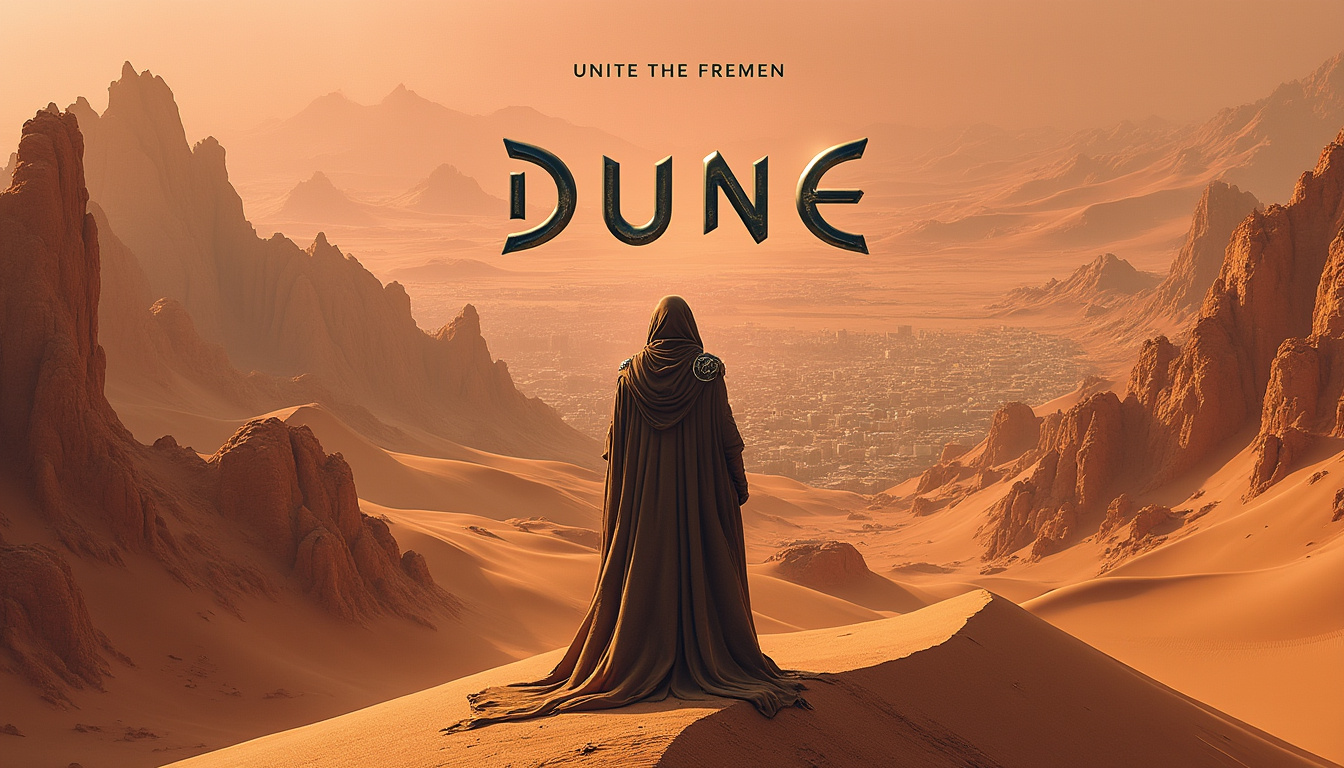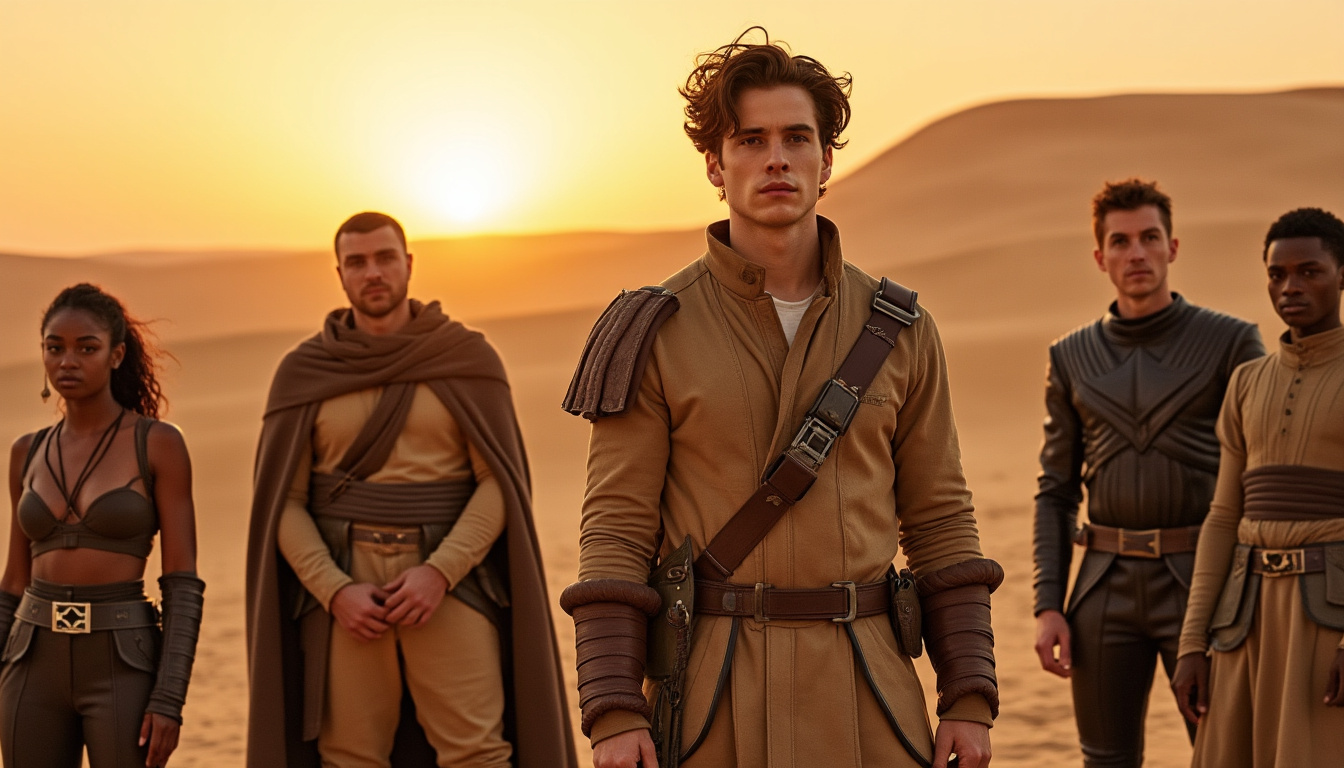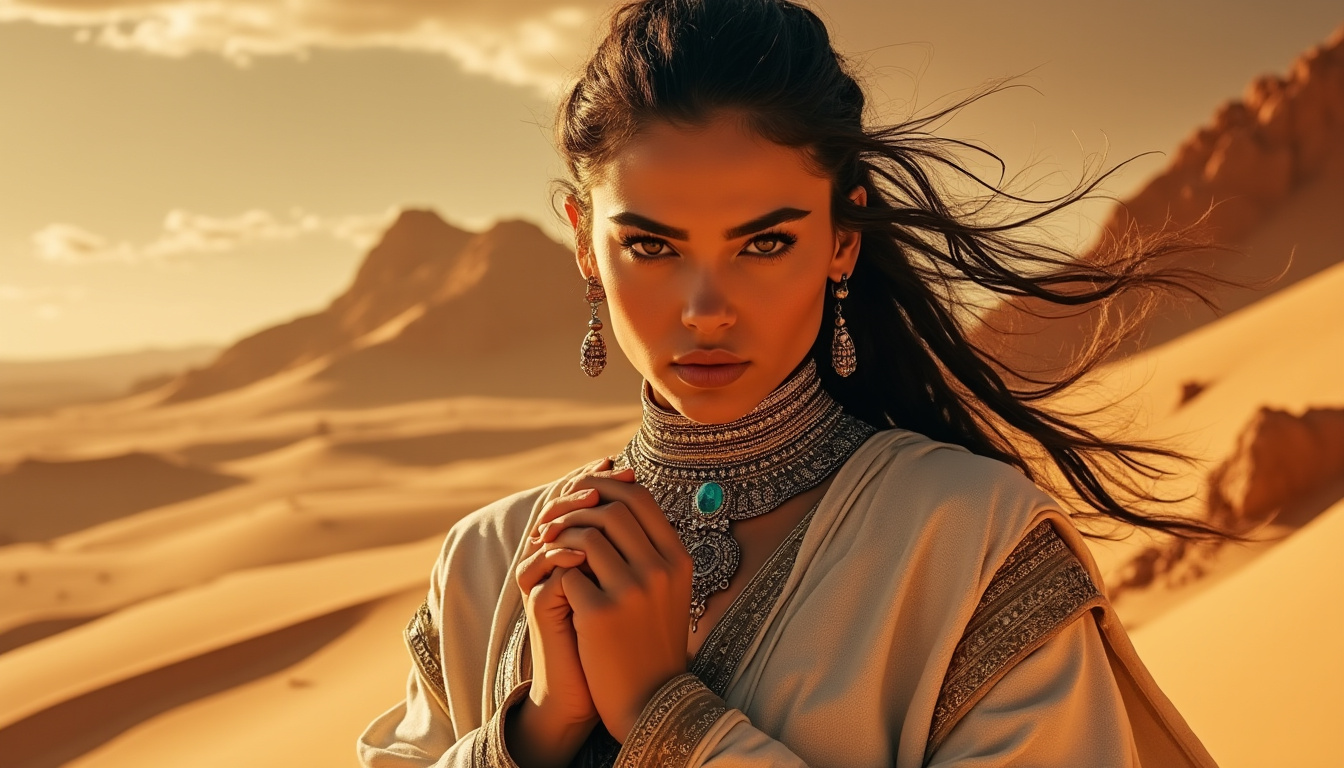In the world of cinema, few franchises have garnered as much attention and anticipation as Dune. The adaptation of Frank Herbert’s monumental novel series has captivated audiences and critics alike, establishing itself as a landmark in the science fiction genre. Among the talented ensemble cast, Florence Pugh, an Oscar-nominated actress known for her dynamic range, has expressed her aspirations for a more prominent role in the upcoming installment, Dune: Messiah. As fans eagerly await the continuation of this epic saga, Pugh’s insights bring forth intriguing possibilities for character development and narrative depth.
Florence Pugh’s Character Journey: From Dune: Part Two to Dune 3
In Dune: Part Two, audiences were reintroduced to Pugh’s character, Princess Irulan, who played a pivotal yet understated role. The film culminated with her accepting a marriage proposal from Paul Atreides, illustrating her complex relationship dynamics. Pugh, in recent interviews, has indicated her desire for Irulan to transcend her initial portrayal and become a central figure in the subsequent story. The anticipation builds as Denis Villeneuve, the visionary director, prepares to explore deeper layers of this character in the upcoming film.

Character Complexity and Potential Development
The Dune franchise thrives on intricate character arcs and the interplay of political intrigue. In the original novel, Irulan is a character straddling loyalty and ambition, married to Paul Atreides while being overshadowed by his love for Chani. This duality presents an opportunity for Villeneuve to expand Pugh’s role significantly in Dune: Messiah. The exploration of Irulan’s motivations, struggles, and evolving relationships promises a rich narrative tapestry for fans to immerse themselves in.
- Political Ambition: Irulan’s position as the daughter of Emperor Shaddam IV sets the stage for intense political machinations.
- Emotional Depth: The strained marriage between Irulan and Paul could serve as a compelling emotional narrative thread.
- Cinematic Aesthetics: Pugh humorously expressed her desire for “more cool outfits,” hinting at the visual splendor that awaits the audience.
The Role of Women in Dune’s Narrative
Frank Herbert’s Dune is distinguished not just for its grand vision but also for its nuanced portrayal of women. Female characters, particularly the Bene Gesserit sisterhood, wield significant influence within the narrative. Pugh’s engagement in this world highlights the alignment with contemporary themes surrounding gender representation in the film industry. As strong, multifaceted characters like Irulan take center stage, audiences are reminded of the importance of depth in female representation.

Contextualizing Irulan’s Role Among Other Powerful Women
In comparison to other female characters, notably Chani (played by Zendaya) and the Bene Gesserit, Irulan’s character arc can provide a fresh perspective. While Chani is frequently portrayed through the lens of love and loyalty, Irulan’s trajectory has the potential to delve into the complexities of power, envy, and ambition.
| Character | Role | Significance |
|---|---|---|
| Irulan Corrino | Political Advisor and Spouse | Represents loyalty amid ambition |
| Chani | Love Interest and Warrior | Embodies resilience and loyalty |
| Lady Jessica | Bene Gesserit and Mother | Symbolizes the deep-rooted power of women |
Florence Pugh’s Aspirations for Dune 3
During an interview, Pugh articulated her hopes for a more substantial narrative journey for Irulan, emphasizing her enthusiasm for evolving the character within the larger framework of Villeneuve‘s blockbuster vision. With filming set to commence imminently, Pugh’s determination for Irulan’s character to grow beyond the traditional confines of a passive spouse is palpable. Her request for “more cool outfits” not only reflects her playful demeanor but also the visual storytelling that the Dune films are renowned for.
Potential Themes in Dune: Messiah
The thematic undertones of Dune: Messiah are expected to explore the intricacies of power dynamics, familial duties, and political manipulation. Irulan’s character can serve as a conduit for examining these themes from a unique perspective. Her struggle to assert her identity while navigating a tumultuous political landscape could resonate deeply with modern audiences.
- Power and Control: How Irulan leverages her position as an advisor to navigate the complexities of the Atreides lineage.
- Jealousy and Rivalry: The dynamics between Irulan and Chani, and how this may affect their roles within the broader narrative.
- Growth and Independence: Irulan’s journey towards self-realization amid the pressures of her marriage and political expectations.
Speculation on Dune 3’s Cast and Production Dynamics
The ensemble cast for Dune: Messiah remains a point of excitement as well. With returning allies like Timothée Chalamet, Zendaya, and Jason Momoa offers a sense of continuity. Furthermore, recent reports suggest that Warner Bros. is evaluating new talent for pivotal roles, including Paul and Chani’s children, Leto and Ghanima.

The Impact of New Characters on the Storyline
The introduction of new characters can significantly reshape the narrative landscape of Dune. Depending on how they’re interwoven with established characters, they can elevate existing tensions or introduce new conflicts. As the story progresses toward the themes of family legacy and destiny, the evolving dynamics among the Atreides family will become increasingly relevant.
| Actor | Character | Role Overview |
|---|---|---|
| Timothée Chalamet | Paul Atreides | Central figure leading the revolution |
| Florence Pugh | Irulan Corrino | Political strategist and wife |
| New Actor | Leto Atreides II | Son of Paul and Chani, potential rebel leader |
These emerging roles not only contribute to the sprawling tapestry of the Dune universe but also highlight the importance of future generations in shaping the destiny of Arrakis. As the production gears up, discussions surrounding character depth, actor dynamics, and thematic exploration are bound to intensify.
Audience Anticipation and Cultural Impact
The anticipation surrounding Dune 3 is palpable, with fans and critics alike eagerly discussing the implications of Pugh’s desired character expansion. The success of the Dune franchise has sparked renewed interest in science fiction storytelling, emphasizing the need for complex characters and multifaceted narratives.
The Role of Fans in Shaping the Narrative
Engaged fanbases have the power to influence story directions, especially in cinematic adaptations. The passion expressed by fans for characters like Irulan, coupled with Pugh’s demands, illustrates this dynamic. As the narrative evolves within the film, audience reactions could shape subsequent decisions about character arcs, themes, and adaptations.
- Interactive Engagement: Fan theories and discussions amplify excitement leading to a film’s release.
- Cultural Reflections: The film’s approach to gender and power dynamics mirrors current societal dialogues.
- Legacy Building: How Dune continues to influence the cinematic landscape of science fiction.
As the production of Dune 3 progresses, the collective excitement surrounding Florence Pugh’s expanded role as Princess Irulan illustrates the intricate balance between storytelling and audience engagement. With Villeneuve at the helm, the narrative promises to fuse character exploration with broader themes, reflecting the cinematic maturity of not just the franchise, but the entire science fiction genre.


